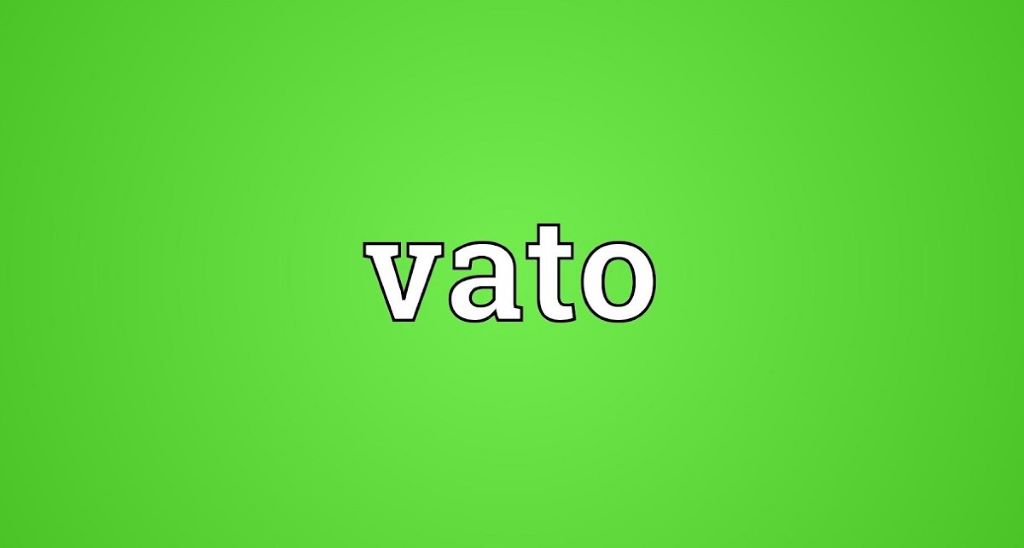The word “vato” is commonly used in Mexican and Chicano culture, but there is some debate over whether it should be considered offensive or a bad word. In this article, I’ll provide a thorough exploration of the origins and meanings behind vato, look at how it is used in different contexts, and discuss the arguments around whether is vato a bad word.
What Does Vato Mean?
Vato is a Spanish slang term that originated in Mexico and is commonly used in Mexican-American culture. It has different meanings depending on the context. Here are some of the common definitions:
- Guy, dude, man. Used as a general term for a man or guy. “Qué onda vato” means “What’s up dude?” This is the most common and benign usage.
- Friend, buddy, homie. Used to refer to a friend or someone in your circle. “Ese vato es mi amigo” means “That dude is my friend.”
- Pachuco. Specifically refers to a Mexican-American zootsuiter associated with the Pachuco subculture of the 1940s. They had a unique style of dress with zoot suits and spoke Caló slang.
- Gangster, thug. In some contexts, it can refer to a gangster or thug. “No te metas con ese vato” means “Don’t mess with that guy.”
- Old man. Particularly in Central America, it can refer to an old man. This usage is less common.
So in summary, it has meanings ranging from a generic term for “dude” or “guy” to more specific references to friends, gangsters, or old men depending on the context. The neutral usage as “dude” or “man” is the most frequent modern usage in casual contexts.
Origins and History of Vato
The origins of vato can be traced back to Caló slang used by Mexican-Americans in the early 20th century. Here’s some background:
- Caló – Caló refers to a slang language that developed in Mexican-American barrios in the early 1900s. It was a mix of archaic Spanish, Mexican slang, and English words. Vato was one of the many slang terms that originated from Caló.
- Pachucos – In the 1940s, Mexican-American teenagers in cities like Los Angeles developed their own unique subculture called the Pachucos. They wore zoot suits, spoke Caló, and had their own slang, attitudes, and gang culture. The Pachucos widely used the term vato.
- Chicano movement – Starting in the 1960s, Mexican-Americans adopted the term Chicano as part of the civil rights movement. Chicano culture, art, and slang like vato became popular expressions of identity.
So the origins of vato tie back to Spanish/Mexican slang, Pachuco culture, and eventually the Chicano movement. It’s a slang term that has endured over many decades as part of Mexican-American vernacular.
How Vato is Used
Here’s an overview of how vato is used in Mexican and Chicano culture:
- Used widely in casual conversation as a general term for “dude,” “guy,” or “man.” This neutral usage is very common.
- Used among friends as a term of endearment or affiliation. Close friends might greet each other with “Qué onda vato” or refer to each other as vatos.
- Used in Mexican-American music, art, and media representations. For example, Chicano rappers use vato in lyrics.
- Part of general Mexican/Chicano slang and vocabulary. It’s common slang that most people are familiar with.
- Sometimes used with “ese” – “ese vato” means “that dude.”
- Can have positive, negative, or neutral connotations depending on context. Calling someone “good vato” is positive, while “that vato” can be negative.
- Less frequently used as a specific term for gangster or thug. This usage is declining.
- Used heavily in contexts like Los Angeles, cities with large Mexican-American populations. Less common in some Latin American Spanish.
So in summary, vato is a prevalent slang term in Mexican-American speech and culture with a variety of usages ranging from neutral to potentially negative/positive based on context.
Is Vato Offensive? Arguments For and Against
There are differing perspectives on whether using vato should be considered offensive or inappropriate:
Arguments That It Is Offensive
- Association with criminal/gang culture – Since vato originated from Pachuco and gang culture, some see it as tied to criminality.
- Derogatory meanings like “thug” or “gangster” – When used to directly describe someone as a criminal/thug, it can clearly be derogatory.
- Older Mexican-Americans may consider it rude or uncouth.
- Seen as lower class/uneducated speech by some. Not considered proper Spanish.
- Can contribute to cultural stereotypes if overused by non-Mexicans.
Arguments Against It Being Offensive
- Most common usage is harmless as “dude” or “guy.” The neutral usage far outweighs negative usages.
- Considered inoffensive slang in most of Mexican-American culture. Just everyday casual vernacular.
- Meaning has expanded over time – no longer tied just to criminal/gangster stereotypes.
- Appropriate in certain cultural contexts and language varieties. Similar to how “yo” or “homie” is used.
- Should be acceptable for non-Mexicans to use if not used mockingly/inappropriately.
Conclusion on Offensiveness
Overall, the mainstream consensus seems to be that vato is not an offensive or inappropriate word in most contexts. When used neutrally as “dude” or “guy”, it is considered harmless slang. However, non-Mexicans should probably avoid using it excessively to avoid sounding inauthentic. And it clearly can be offensive if used specifically to label someone as a criminal or gang affiliate. But in most cases, it’s viewed as a normal, acceptable part of the modern Mexican/Chicano vernacular.
Using Vato in Different Contexts
Here are some guidelines on when and how to use vato appropriately:
- Casual conversation with Mexican/Mexican-American friends – Totally fine to use it neutrally as “dude”, “man”, etc.
- Among Chicano communities and networks – Considered part of the everyday lingo. Avoid gang/criminal connotations.
- Youth/pop culture contexts like music, art, etc – Very common and acceptable.
- Non-Mexicans should use sparingly/cautiously – Don’t overuse or it may seem like cultural appropriation.
- Avoid using to describe criminals/gangsters – This specific usage is offensive and inaccurate these days.
- Older Mexican-Americans may not use the term – May seem too casual or youth-oriented to them.
- Certain professional/formal settings – Should be avoided or minimized similar to other informal slang.
The key is being aware of the context and avoiding the negative criminal/gangster connotations. But otherwise vato is now considered a normal part of the Mexican-American vernacular in casual, youth, and pop culture contexts. Just don’t overuse it if you aren’t Mexican!
Vato in Popular Culture
Vato became widely known outside of Mexican-American culture through its usage in movies, music, and other pop culture mediums. Here are some examples:
- Movies – “Mi Vida Loca”, “Blood In Blood Out”, “American Me”, “Friday”, “Colors”. Used frequently in films about Chicano life.
- Music – Songs like “Vato” by Snoop Dogg, “Vato Loco” by Dorasel, “Vatos” by The Barrio Boyzz. Used in Latin rap/hip-hop.
- TV – “Breaking Bad”, “East Los High”, “On My Block”. Heard commonly in shows set in the southwest US.
- Books – “Always Running” by Luis Rodriguez, “Bless Me Ultima”. Used in Chicano literature.
- Fashion – Vato became part of the cholo subculture style. “Vato” shirts and hats are often worn.
So through many cultural depictions in arts/media, vato became strongly associated with Chicano culture and style. It’s now a well-known term even for non-Mexicans.
“Vato” in Other Forms
Beyond the basic word “vato”, there are many derivations and compounds of the term used in slang:
- Vatito – Affectionate term for a young vato. Like “little dude.”
- Vata – Feminine form equivalent to “chick” or “girl.”
- Ése vato – Emphasized as “that vato over there.”
- Vato loco – Crazy dude. Somewhatunsafe or unpredictable guy.
- Vatos pesados – “Heavy dudes.” Tough guys or gangsters.
- Pisa vato – Punk dude. Lame or uncool guy.
So in summary, vato has expanded into many different slang terms and phrases that add additional meaning in Mexican-American slang. The variations allow speakers to get quite specific in references.
Frequently Asked Questions
Is vato a Mexican word?
Vato originated as Mexican-American slang, derived from archaic Spanish terms used in Caló and Pachuco culture. It’s considered Mexican-American slang rather than standard Mexican Spanish.
What’s the female version of vato?
The common female equivalent of vato is “vata.” It means girl or chick. “Esa vata” means “that girl.”
Can you use vato affectionately?
Yes, vato can be used affectionately between close friends. “Eres mi vato” means “you’re my dude” in a friendly way. It’s similar to “bro” in English.
Is vato a bad/swear word?
In most usages, vato is not considered an offensive swear word. It’s informal Mexican-American slang but not necessarily a bad word. However, it can be derogatory if used to insult someone as a gangster/criminal.
Should non-Mexicans use vato?
It’s generally acceptable for non-Mexicans to use vato in a very limited way if they are immersed in Chicano culture. But overusing it may come across as inauthentic or mocking. Avoid it if you are not confident using it appropriately.
In summary
Vato has its origins in Mexican-American gang culture but evolved to have a variety of meanings ranging from the neutral “dude” to the negative “gangster.” Most Chicanos consider casual uses of vato to be normal, acceptable slang, but inappropriate criminal connotations should be avoided. With the right cultural awareness, vato can usually be used appropriately, but non-Mexicans should be cautious about overusing the term. Hopefully this breakdown offers some clarity on this complex slang word!





